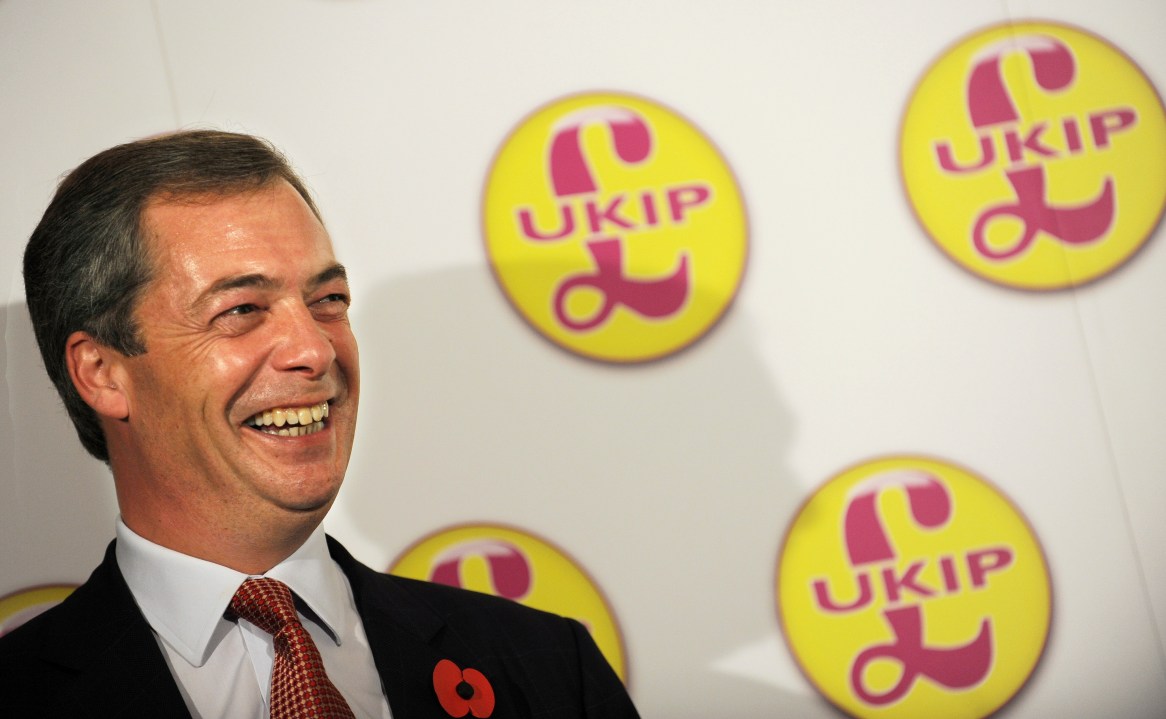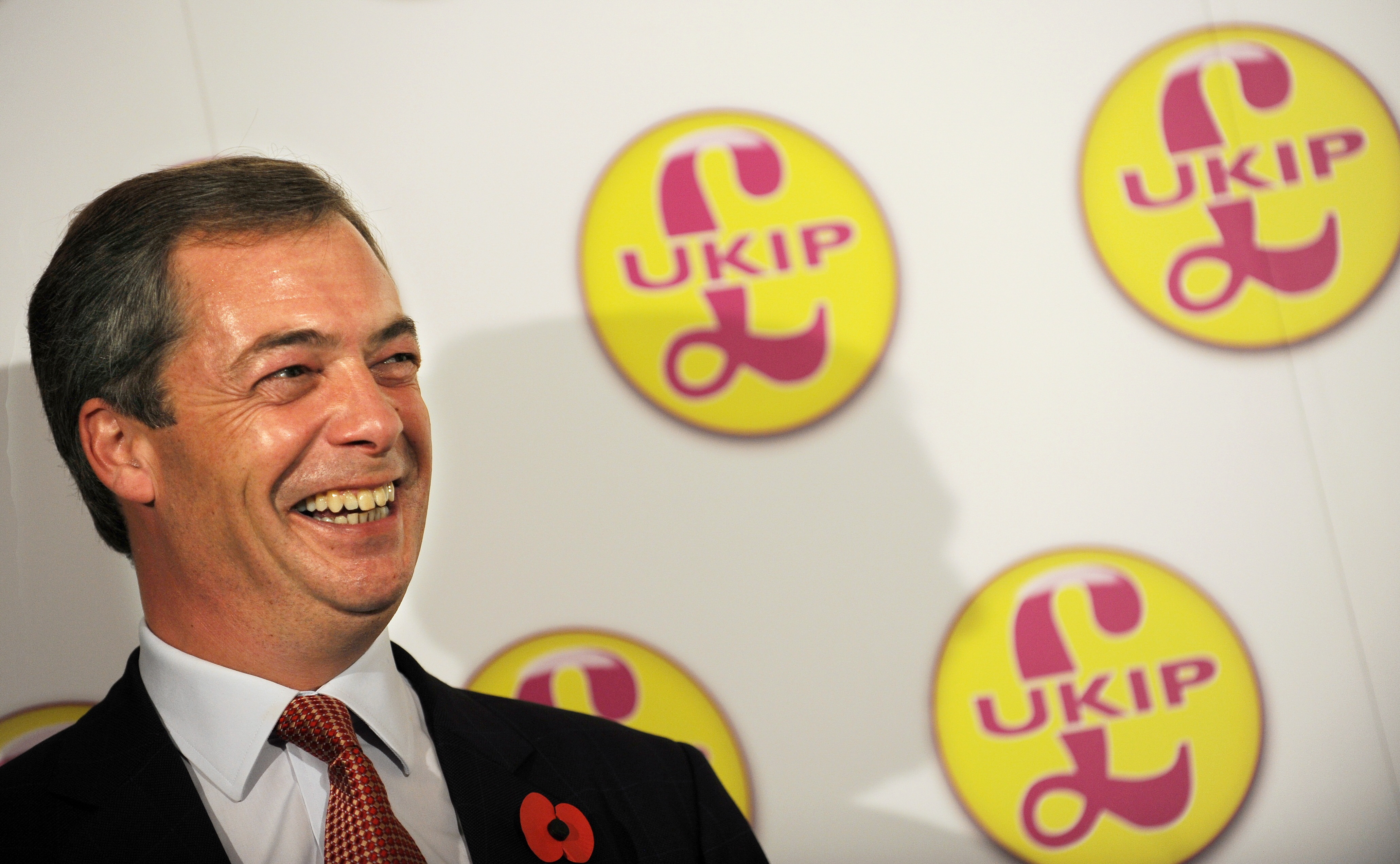Who represents the biggest obstacle to a Tory majority in 2015? The
natural assumption is Labour, but it’s looking more and more likely that the party David Cameron should be most worried about is UKIP. Tim Montgomerie has written in the Times this morning (£) about the reason behind this, the ‘split of the right-wing vote’:
Unfortunately for Cameron, Gordon Brown is no longer here to be a voodoo doll for the right and Ed Miliband remains too harmless to be a figure of hatred. This leaves the Tories vulnerable to someone — like Nigel Farage — who can take advantage of the PM’s centre-ground politics to seize right-wing voters. Montgomerie is not the first commentator to notice the pressure UKIP is placing on the Cameroons. Last year, Peter Oborne praised UKIP’s ‘courage to stand outside this cosy alliance and to cause havoc’. But coming from the leading voice of the Conservative grassroots, this warning — that UKIP cannot be laughed off or ignored — will resonate particularly strongly.‘Team Cameron has always believed that the Tories’ right-wing voters could pretty much be taken for granted. The theory was that they had nowhere else to go and that Mr Cameron had to devote all his energy to winning swing voters. This gamble worked as long as Tory-inclined voters were primarily motivated by a desire to oust Gordon Brown and also retained the hope that Mr Cameron would be more conservative in office than he appeared in opposition.’
Just a year ago, UKIP was on just 4 per cent in the polls; now they’re up at around 7. One poll at the weekend even had them as high as 11 per cent, neck and neck with the Lib Dems for third place. All the signs point to a strong showing in the 2014 European elections, and the defection of a Tory MP or two could cause serious trouble for Cameron in 2015. UKIP’s rise means he won’t be able to ignore his grassroots critics for much longer.







Comments